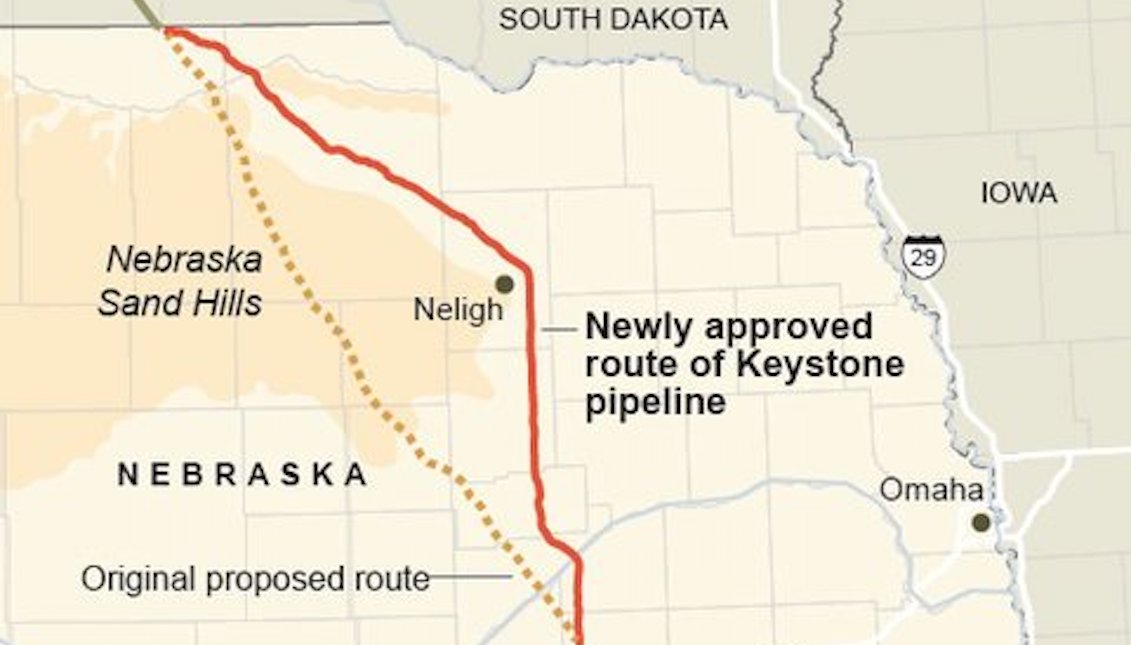
Thanks to Nebraska the Keystone XL pipeline will come true
Nebraska regulators have approved the last stretch necessary for TransCanada to conclude the route of the Keystone XL pipeline through the state, giving Trump…
This time Goliath has defeated David at the point of large sums of money and pipes that will transport black gold.
The last regulatory hurdle facing the Dakota pipeline project has been overcome, and TransCanada will eventually be able to transport crude from Alberta to refineries in the United States.
In a vote of 3 to 2, the Nebraska Public Service Commission has cleared the way for the pipeline that will add 8 kilometers, a pumping station and transmission lines, according to Reuters.
RELATED CONTENT
The proposed route (1,899 kilometers) between Hardisty (Alberta) to Steele City (Nebraska) "has been controversial since it was first advocated nearly a decade ago, with environmentalists making it into a symbol of their broader fight against fossil fuels and global warming," the report continues.
While the previous administration had studied the project for years to finally deny its permission in 2015 - arguing that "it would not make a significant contribution to our economy" - Trump quickly reversed this decision and finally granted permission during the month of March, promoting "28,000 jobs nationwide". But a State Department study in 2014 predicted that the project would only offer 3,900 jobs under construction and only 35 fixed jobs.
But the most important concern for the opponents of the project has to do with its environmental impact. This debate has been going for years, and activists have argued that Canadian crude - more "dirty" than the current - "releases more greenhouse gases than standard crude extraction," CNN reported.
Likewise, environmental spokesmen have warned for years about the risk of spills like the one that happened on November 16, where one of TransCanada's pipes leaked 795,000 liters of crude oil in a rural area near the border with North Dakota, the last of 17 accidents that have been reported since 2010.
Despite all the facts and all the evidence, the pipe monster will cross the country for the benefit of only a few and at the cost of miles of land.










LEAVE A COMMENT: